One of the prominent features of authoritarian regimes is the high number of political prisoners. Those who are imprisoned because they have opposed or criticized the government in power or those imprisoned for simply asserting their political beliefs itself. India is no stranger to the persecution of political opponents by the ruling establishment. During the Emergency (1975-77), it is estimated that 1,10,000 persons were arrested under the Maintenance of Internal Security Act and the Defence of Internal Security of India Rules. Many of them were arrested simply by virtue of members of banned organisations who were opponents of the Indira Gandhi regime then (Prakash 2018, p.176).
The use of ‘special’ Laws was crucial in enabling the government. These laws are an ‘exception’, to regular due process rules and basic rights of accused persons as per the Criminal Procedure Code, 1973. For instance, MISA allowed Indian law enforcement agencies very broad powers without any checks – indefinite preventive detention of individuals, search and seizure of property without warrants, and very importantly forbade the courts from applying the concept of “natural justice” in cases involving detainees, No one including a foreigner could challenge detention on grounds of natural or common law; and grounds of detention were defined as confidential matters of state and their disclosure, including to the detainee was against the public interest.[1]
Related Reading: UAPA and NIA amendments: Tools to silence dissenting voices
The current dispensation use of special security/ terror legislation like the Unlawful Activities Prevention Act, 1967, National Security Act, 1980, and Public Safety Act, 1978 (limited to J &K) is strikingly similar. These were legislations brought in by Congress governments but are currently being used with extreme brutality by the BJP central and state governments, on its dissidents. The sudden increase in political prisoners came in three waves, first, the Bhima Koregaon arrests, then the preventive detention of all Kashmiri political leaders after the abrogation of the Article 370 (Constitution of India) and finally the arrests of Anti-CAA protesters across the country, the witch-hunting in each of these waves continues.
Bhima Koregaon arrests (2018)
To mark the 200th year of the victory of the battle of Bhima Koregaon, several Dalits gathered on the site in January 2018. This was met with a violent attack on protesters which left one person dead. The Maharashtra Police, instead of investigating the violence, used this opportunity to shift focus to Elgaar Parishad, a gathering organized by activists, and human rights defenders in December 2017. Human Rights Activists Surendra Gadling, Mahesh Raut, Sudhir Dhawle, Professor Shoma Sen, Rona Wilson were framed and arrested under UAPA for “inciting violence.” Right after, Activist Sudha Bharadwaj, Varavara Rao, Arun Ferreira, and Vernon Gonsalves were arrested in August 2018. In April 2020, Activist Gautam Navlakha and Dr. Anand Teltumbde were arrested. In July 2020, Prof. Hany Babu was arrested. Through 2019 and 2020, bail pleas of these activists have been rejected several times, even during the pandemic.
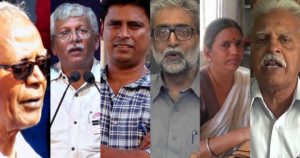
Under UAPA, the vagueness of words like “intent to threaten or likely to threaten the unity, integrity security, the sovereignty of India.. or likely to strike terror” as well as “by any other means” in the definition of a terrorist act. This vagueness gives investigative authority the discretion to decide which nonviolent political acts become “terrorist acts” and which political acts continue to be charged under IPC sections on rioting etc. To give this more context, There are various reports that Sambhaji Bhide and Milind Ekbote conspired to instigate violence at Bhima Koregaon, including social media posts attributed to Ekbote’s organization that used violent language. However, UAPA was not invoked in the FIRs against them. [2] On the other hand, Marathi Translation of Bertolt Brecht’s poem, which was quoted in a speech during the Bhima Koregaon celebration was reason enough for the police to invoke charges of terrorist activity under UAPA.[3]
Political prisoners after the abrogation of Article 370 of the Constitution of India
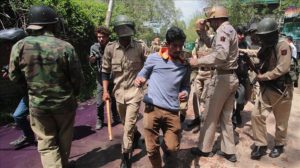 Over 500 prominent political workers and leaders, including former chief ministers Omar Abdullah and Mehbooba Mufti, have been detained in Jammu and Kashmir since the Centre decided to revoke Article 370. Other figures show that at least 5,000 people including businessmen, civil society members, lawyers, and activists have been detained to prevent protests breaking out under the Public Safety Act which allows detention without trial for up to two years.[4]
Over 500 prominent political workers and leaders, including former chief ministers Omar Abdullah and Mehbooba Mufti, have been detained in Jammu and Kashmir since the Centre decided to revoke Article 370. Other figures show that at least 5,000 people including businessmen, civil society members, lawyers, and activists have been detained to prevent protests breaking out under the Public Safety Act which allows detention without trial for up to two years.[4]
Political prisoners from the Anti- CAA-NPR-NRC movement
In the week that Citizenship Amendment Act (CAA) 2019 was tabled and passed, students from two minority institutions in the country, Jamia Millia Islamia in Delhi and Aligarh Muslim University in Aligarh, Uttar Pradesh, mobilized against the CAA. For asserting their constitutional right to protest, the students faced brutal police action. As protests against CAA started to strengthen through December and January, Shaheen Bagh, an indefinite sit-in declared by Muslim Women in Delhi turned into an international phenomenon. Similarly, Assam saw Massive protests against the law. The reach that this movement had, threatened the state and was thus met, with the use of disproportionate force. Thousands were arrested across the country in the anti- CAA-NPR-NRC movement under both general and special laws.
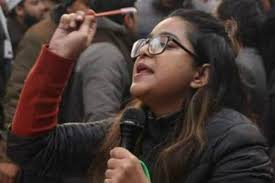
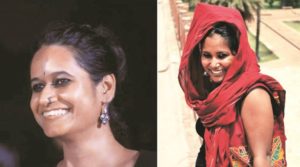
In the run-up to Delhi elections, BJP leaders made Shaheen Bagh an election issue and used words like “terrorists” and “anti-nationals” to define the protesters. In February 2020, BJP leader Kapil Misra openly threatened the protesters, after which a pogrom was carried out against Muslims in North East Delhi. Till today, not a single FIR has been filed against him. However, Delhi Police and the state used this opportunity to falsely accuse human rights activists and students who were protesting against the CAA. UAPA was used on students of Jamia and JNU– namely, Safoora Zargar, Devangana Kalitha, Natasha Narwal, Meeran Haider, so that they don’t get bail. The bail plea of Safoora Zargar was rejected several times before she was given bail on “humanitarian grounds” as she was pregnant. However, the attack on dissenters is ongoing and arrests are happening frequently even now.
The problem with Draconian Special laws
The presumption of innocence (no one can be held guilty without a trial), the right against self-incrimination (right to not to be a witness against oneself), the right against extended periods of police custody, the right to bail when the Investigating Agency defaults in submitting its final report on time, etc. are foundational principles of our criminal justice system. The underlying reason for these protections to accused persons is that the State through its investigative agencies have immense powers against accused persons. There is a history of abuse, coercion, and torture by our investigative agencies.
General laws[5] allowed for some measure of accountability against the investigating agencies, special laws simply take all of that away. Criminal law professor, Kunal Ambasta argues that IPC covers terrorist activities and punishes them with the highest penalty known to the law, the UAPA and NSA do not add to it, the only change is the procedural modifications, such as its near-absolute denial of bail, based only on a preliminary view of police proceedings into an allegation, the long periods of Pre-trial custody allowed.[6] For example, one of the Bhima Koregaon accused, Adv. Surendra Gadling has now been in pre-trial custody for over 750 days under UAPA. A UAPA accused can be detained for 6 months without any requirement on the police to share the charges against them or produce any evidence against the accused justifying such custody.
Pointing this out, he goes a step ahead and argues, that these laws are not being abused by the state but are designed for abuse for the state. The vagueness of terms in these Special laws gives a lot of scope for abuse. These legislations become the go-to legislations for the state to suppress political dissent. The investigative agencies don’t have to break a sweat to collect evidence against the accused when one can have such long periods of pre-trial detention, why bother? the message to the political dissident is clear.
Laws such as UAPA, sedition, NSA have no place in a democracy, and there should be collective efforts to demand the repeal of these laws. Several international bodies and grassroots movements are mobilizing efforts to continue this struggle.
Aiman Khan holds an M.A in Women’s Studies, from Tata Institute of Social Sciences, Mumbai. She is associated with Quill Foundation, Delhi as a researcher.
Mohammed Afeef is a legal practitioner at the Alternative Law Forum. He graduated from the Institute of Law, Nirma University in 2017. His areas of practice include Constitutional, Labour, and family litigation.
References:
[1] Prakash Gyan, Emergency Chronicles, Penguin Viking 2018, p.175
[2] https://thewire.in/caste/a-reporter-saw-the-bhima-koregaon-violence-coming-now-he-fears-for-his-life
[3] https://www.thehindu.com/opinion/lead/when-brecht-speaks-as-ambedkar/article24998770.ece
[4] https://www.reuters.com/article/us-india-kashmir/india-extends-detention-of-kashmirs-political-leaders-idUSKBN2010OF
[5] Indian Penal Code, 1860 and the Code of Criminal Procedure, 1973
[6] https://www.deccanherald.com/opinion/in-perspective/the-other-pandemic-special-criminal-laws-856788.html

















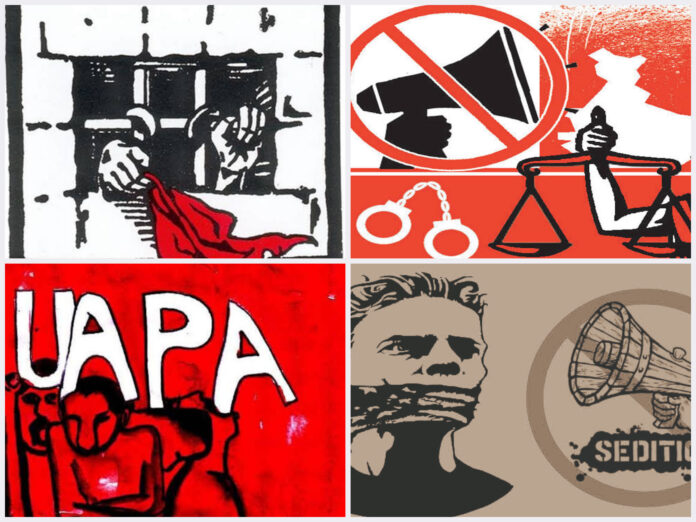
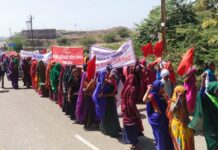
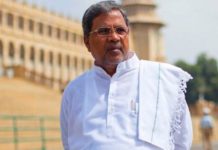




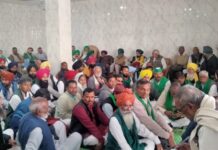
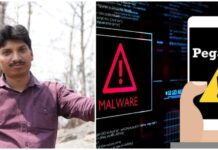
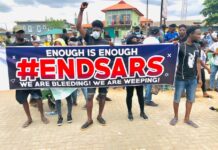
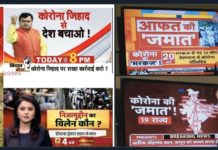


[…] The Undeclared Emergency: Draconian laws and Political Prisoners […]
[…] Read about: The Undeclared Emergency: Draconian laws and Political Prisoners […]
[…] Also Read: The Undeclared Emergency: Draconian laws and Political Prisoners […]
[…] anyone based on something as simple as owning books that discuss social issues. Under this law, there is no definition of what constitutes as an intent to commit a terrorist act, and anything […]